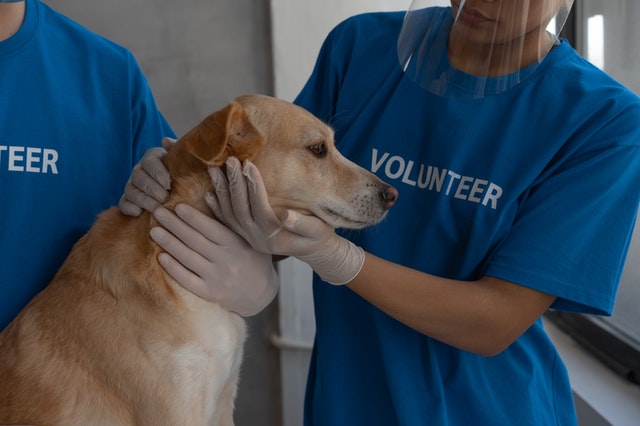
Have you ever come across a person who has selfless concern for the well-being of others? Humans, and even animals, naturally have unconditional care for their family members and other loved ones. But only a few people have such concern for others. According to psychology, this behavior refers to “altruism.” Let’s see altruism definition psychology, its benefits, and how you can incorporate it into your life.
Table of Contents
Altruism Definition Psychology: What Is It?
Psychology defines altruism as an unselfish, unconditional, and disinterested concern for people. It includes doing things with the sole motive of helping others and not to gain something or feel obliged. Altruism is all about acting out of genuine concern for people.
Let’s say a homeless family lives on the footpath near your house. They don’t have proper access to food and other essential resources. Every day, you buy some food at your own expense and give it to them, so they don’t remain hungry. It’s a perfect example of altruism.

Altruism Definition Psychology: Its Types
As per psychology, altruism is of four types. Let’s explain these types, followed by determining which one is the best.
- Reciprocal Altruism: This type of altruism involves helping a particular person expecting that they’ll return the favor one day. It isn’t altruism per se because it isn’t selfless or disinterested.
- Genetic Altruism: This type of altruism includes helping family members and other closed ones. Most people have this feeling, especially towards their parents and children.
- Group-Selected Altruism: This type of altruism focuses on helping a particular group of people based on their religion, beliefs, ethnicity, cast, etc. Many charity organizations and nonprofits engage in group-selected altruism.
- Pure Altruism: In this type of altruism, people help others (not necessarily their acquaintances) without any rewards. People get motivated by their internal values to help others, even if it involves putting themselves at risk.
Now, which form of altruism is the best? Well, reciprocal altruism isn’t really altruism, so let’s rule it out. Genetic altruism is something every individual should have, so it’s critical. Group-selected altruism can be an ideal choice if you want to help a disadvantaged group or community. Pure altruism is the best type of altruism to choose; however, ensure that you don’t put yourself at risk.
Altruism Definition Psychology: Its Benefits
Well, looking for altruism benefits negates its purpose, which is to help others selflessly. However, engaging in acts of altruism can have some undesired but amazing benefits. Here’s why you should engage in altruism.
Improved Mental Health
Studies prove the psychological benefits of altruism. When you help others, you get internal peace and satisfaction, which improves your mental health. In fact, a study discovered that people with chronic medical conditions and their family members achieved emotional well-being by supporting other patients.
Make Others Happy
Performing acts of altruism makes other people happy and changes their perspective in life. Most disadvantaged people think the world is a cruel and unfair place. You can bring a smile to their face and change their view of life. It can also induce a sense of belonging to the people you help and make them feel connected to the world.
Keep Things in Perspective
Not many people realize that helping others can change their outlook on life. Often, people think others are unprivileged, and they’re the unluckiest creatures on the planet. Even you might have thought that you’re unlucky and underprivileged. When you help people who are unfortunate for real, you become more thankful and develop gratitude.
A Better World
Finally, altruism helps you build a better world. When you help others, they become happy. When everyone is happy, the world becomes a better place.

Altruism Definition Psychology: How to Get Started?
It could seem exciting and revolutionary to become an altruist. However, some people do it the wrong way. Here are five ways to become an effective and successful altruist.
Do What You Enjoy
You can do altruism in various different ways, so ensure that you do things that you love and enjoy doing. For instance, if you love dogs, support causes that help stray dogs. If you love children, support causes that focus on providing proper nutrition, education, and healthcare facilities to children.
It’s equally important to avoid doing things that don’t excite you. If you don’t like animals, there’s no point supporting animal causes because you’ll give up sooner or later.
Don’t Support Irrelevant or Harmful Causes
There are some causes that can do more harm than good to the world. You’re the best person to decide which causes are relevant. Only support causes that will create positivity. Often, there are causes that help one community and harm the other. Avoid investing your time, money, and effort in such initiatives.
Steer Clear of Criticism
Some altruists develop the habit of criticizing others who don’t do anything for the greater good. Remember that not every person has an altruistic mentality, and that’s perfectly fine. Most people do what they can in order to help others. So, you should avoid criticizing others even if you feel they do nothing for the greater good.
Avoid Overconfidence
The last thing you need to do is avoid overconfidence. Helping others is a great thing to do, and you’re already doing a great job at making the world a better place. However, don’t let that get the better of you. Even though what you’re doing is amazing, don’t be overconfident or arrogant about it. Altruism is all about helping others selflessly, so being arrogant about it neutralizes its purpose.
That said, you can definitely be confident about your acts and take pride in what you do. Not many people go the extra mile to help others. If you do that, take pride in it.
Wrapping Up: Altruism Psychology Definition
Altruism is a common psychological concept that focuses on helping others selflessly. Many people nowadays are adopting altruistic behavior by helping the needy either on an individual level or by supporting charity organizations. You can also join such people to help underprivileged people and make the world a better place.
RELATED ARTICLES
Latest Articles
 Laura Ingraham Husband James Reyes: Why …In BiographyApril 17, 2025Laura Ingraham is a well-known conservative […]
Laura Ingraham Husband James Reyes: Why …In BiographyApril 17, 2025Laura Ingraham is a well-known conservative […] Zach Top Wife Mystery Solved! Meet the W…In BiographyApril 16, 2025Zach Top’s music has that classic country feel that […]
Zach Top Wife Mystery Solved! Meet the W…In BiographyApril 16, 2025Zach Top’s music has that classic country feel that […] What Is a Parcel Locker? The Game-Change…In TechnologyApril 16, 2025Missing packages? Porch pirates? Missed delivery slips […]
What Is a Parcel Locker? The Game-Change…In TechnologyApril 16, 2025Missing packages? Porch pirates? Missed delivery slips […] Dawn Staley Relationship Rumors: What’s …In BiographyApril 15, 2025When it comes to iconic figures in sports, Dawn Staley […]
Dawn Staley Relationship Rumors: What’s …In BiographyApril 15, 2025When it comes to iconic figures in sports, Dawn Staley […] How Window Tinting Affects Driver Visibi…In TechnologyApril 11, 2025Introduction: Beyond Style — The Functional Side of […]
How Window Tinting Affects Driver Visibi…In TechnologyApril 11, 2025Introduction: Beyond Style — The Functional Side of […] Vaishnav Tej Wife, Age, Family, Girlfrie…In BiographyApril 11, 2025Vaishnav Tej wife: There is always more to know about […]
Vaishnav Tej Wife, Age, Family, Girlfrie…In BiographyApril 11, 2025Vaishnav Tej wife: There is always more to know about […] Nick Sandmann Net Worth, Biography, Heig…In BiographyApril 11, 2025Young Nick Sandmann, catapulted into the media […]
Nick Sandmann Net Worth, Biography, Heig…In BiographyApril 11, 2025Young Nick Sandmann, catapulted into the media […] Cold War Timeline: The Real Story Behind…In HistoryApril 4, 2025If you’ve ever wondered how we ended up with the […]
Cold War Timeline: The Real Story Behind…In HistoryApril 4, 2025If you’ve ever wondered how we ended up with the […]
stopie.com is a participant in the Amazon Services LLC Associates Program, an affiliate advertising program designed to provide a means for sites to earn advertising fees by advertising and linking to Amazon.com.
Clicking on an Amazon link from stopie.com does not increase the cost of any item you purchase.
We will only ever link to Amazon products that we think our visitors may be interested in and appreciate learning more about.



